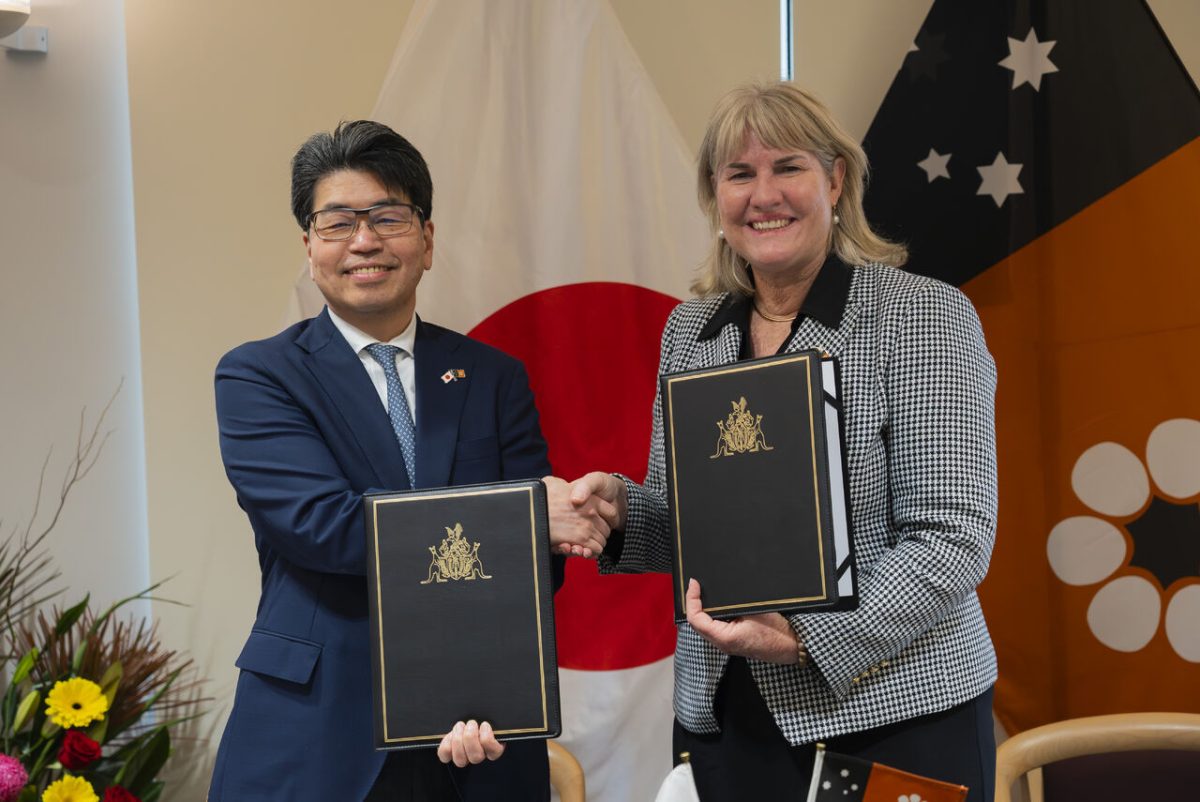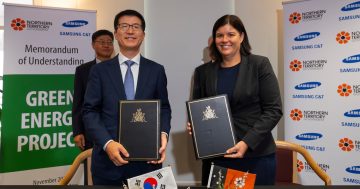
The MoU has been signed in alignment with the Territory government’s International Engagement Strategy 2022-2026, which identified Japan as a high priority. Photo: Industry NT.
Northern Territory Chief Minister Eva Lawler recently signed a Memorandum of Understanding (MoU) with the Japan Bank for International Cooperation (JBIC) in Alice Springs, further deepening the Territory’s relationship with its largest trading partner.
Officials from Japan’s policy-based financial institution will now have regular dialogue with the Northern Territory (NT) on potential cooperative projects in energy and infrastructure.
It’s hoped the MoU will invite further investment into the region, especially in oil and gas, carbon capture, critical minerals infrastructure, hydrogen, ammonia, renewable energy and sustainable aviation fuels.
“There are clear opportunities to expand our relationship with our largest trading partner, to grow our economy and achieve net zero,” said Chief Minister Eva Lawler.
“This is supported by a strong industry development focus that underpins traditional sectors such as agriculture, mining and energy, maritime and tourism, to help grow local Territory business and jobs.”
According to the MoU, it aims to enhance closer economic relations between the NT and Japan, increase financial cooperation with JBIC to support NT projects across priority sectors, and work to address climate change concerns and strengthen coordination among like-minded countries.
It is also expected to create and promote regional business opportunities while strengthening the Special Strategic Partnership between Japan and Australia.
Last financial year the value of goods exported to Japan from the NT increased to $7.7 billion, up 27.3 per cent from the year before, thanks to higher prices for oil and gas, along with more exports of metalliferous ores and metal scrap.
Japan already considers the Northern Territory a reliable supplier of LNG, critical minerals and hydrogen, but this latest effort is in pursuit of their goal to achieve net zero by 2050.
At meetings between Japan and Australia’s leaders on 9 September and 17 November last year, prime ministers Fushio Kishida and Anthony Albanese agreed to work closer on the Asia Zero Emission Community (AZEC) Concept.
Promoting decarbonisation throughout Asia and strengthening cooperation in resources and energy security was also made to help realise a Free and Open Indo-Pacific (FOIP).
Japan’s Ministry of Foreign Affairs aims to establish a rules-based international order that consolidates principles like free trade, freedom of navigation and the rule of law amongst like-minded countries.
Former Japanese Prime Minister Shinzo Abe introduced FOIP as a strategy in 2016, but it wasn’t until the US State Department published a document formalising the concept in 2019 that other countries began to use it.
India, New Zealand, Canada, the UK and South Korea have used the term, but China and Russia have criticised it as a tool to contain the Middle Kingdom.





